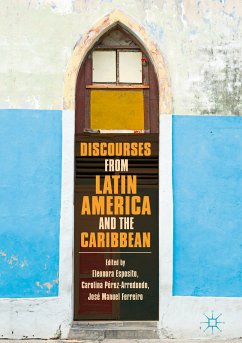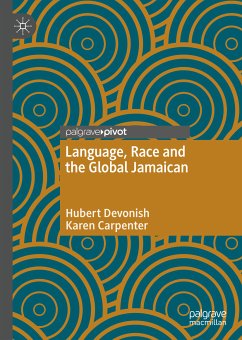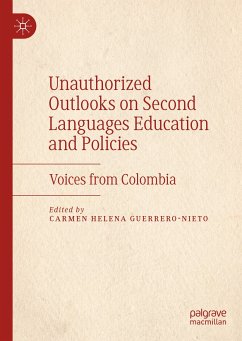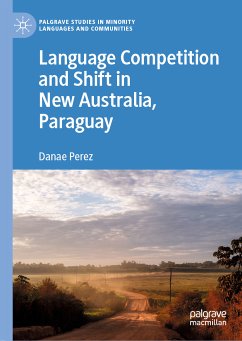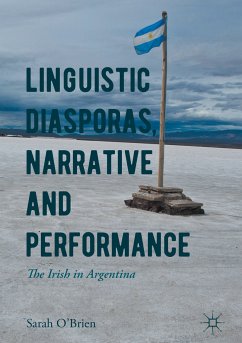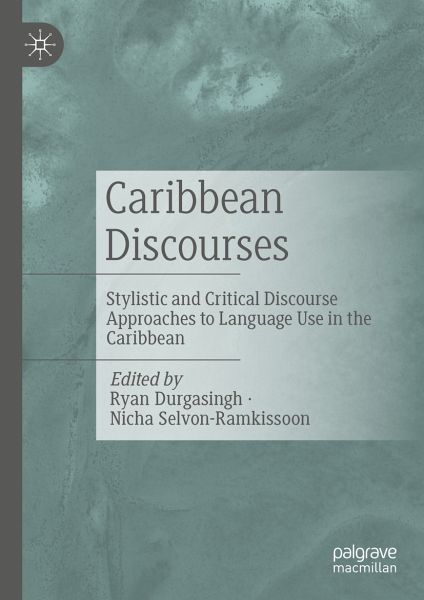
Caribbean Discourses (eBook, PDF)
Stylistic and Critical Discourse Approaches to Language Use in the Caribbean
Redaktion: Durgasingh, Ryan; Selvon-Ramkissoon, Nicha
Versandkostenfrei!
Sofort per Download lieferbar
96,95 €
inkl. MwSt.
Weitere Ausgaben:

PAYBACK Punkte
48 °P sammeln!
This edited collection represents a first-of-its-kind exploration of English-related discourses in the Caribbean. Drawing from Critical Discourse and stylistic analyses, the book's wide-ranging chapters examine language as it is produced within the complex demographic milieu of the region. It addresses a critical lack of linguistic scholarship on discourse types from the Caribbean, since the major academic focus in the post-independence era has been on descriptive and interventionist work in Creole Linguistics. This volume seeks to add new dimensions to language in practice with its focus on t...
This edited collection represents a first-of-its-kind exploration of English-related discourses in the Caribbean. Drawing from Critical Discourse and stylistic analyses, the book's wide-ranging chapters examine language as it is produced within the complex demographic milieu of the region. It addresses a critical lack of linguistic scholarship on discourse types from the Caribbean, since the major academic focus in the post-independence era has been on descriptive and interventionist work in Creole Linguistics. This volume seeks to add new dimensions to language in practice with its focus on the development of discourse types within the region, public policy, discourses surrounding the galvanising figure of the Caribbean Prime Minister, literary discourses, and gender and media representations. As a site of great variation, linguistic and otherwise, the Caribbean provides unique insight into the interplay of the socio-political and language in contemporary societies in the Global South. Based on work presented at the University of Trinidad and Tobago's "Stylistics, Critical Discourse Analysis and Language Use in the Caribbean" 2021 conference, the book draws together papers from established Caribbeanists seeking to bridge the existing theoretical and analytical gap between the more macro, socio-political aspects of studies in the social sciences, and the more micro features of linguistic analysis. With its breadth of coverage and analysis, this volume has implications for work being done at all levels of university scholarship in the social sciences, media discourses, decolonisation practices, and language and society in postcolonial and multi-ethnic contexts worldwide.
Dieser Download kann aus rechtlichen Gründen nur mit Rechnungsadresse in A, B, BG, CY, CZ, D, DK, EW, E, FIN, F, GR, HR, H, IRL, I, LT, L, LR, M, NL, PL, P, R, S, SLO, SK ausgeliefert werden.



